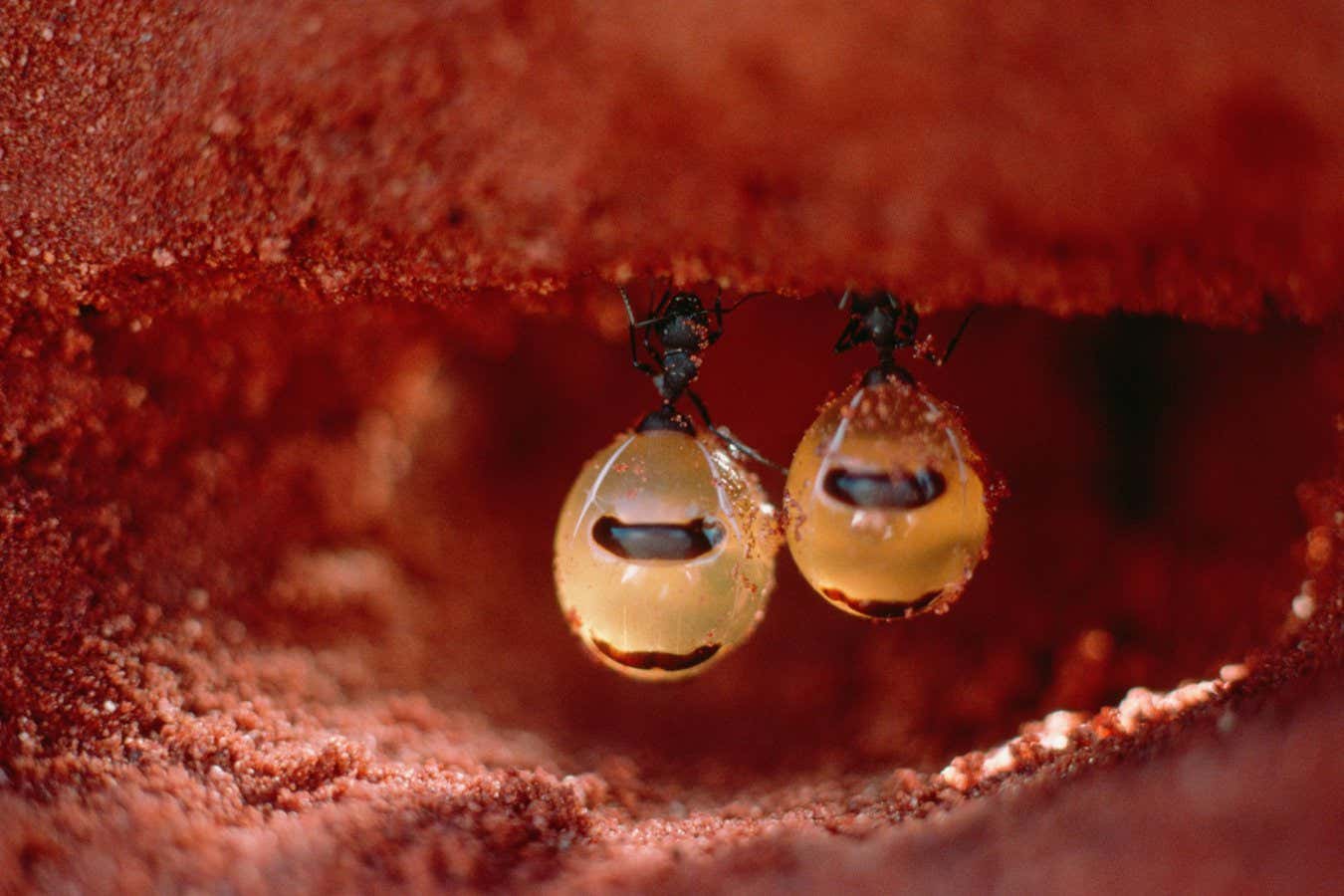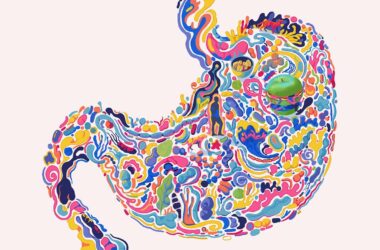Honeypot ants (Camponotus inflatus) hanging from the ceiling of a nest, engorged with nectar
Minden Pictures/Alamy
Honey produced by a type of ant in Australia has antimicrobial properties that could one day lead to new treatments against some bacterial and fungal infections.
Australian honeypot ants (Camponotus inflatus) are found in arid regions of central and western parts of the country. Their colonies include ordinary worker ants and a specialized group known as repletes. The repletes gather nectar and store it in their extended abdomens, giving them a glassy, amber hue.
Researchers from the University of Sydney, Australia, conducted a laboratory experiment where they exposed various bacterial and fungal pathogens to different concentrations of the ant honey. They discovered that an 8% honey solution killed the bacterium Staphylococcus aureus, a prominent cause of skin and soft tissue infections. At a 16% concentration, the honey was effective against fungi species such as Aspergillus fumigatus and Cryptococcus deuterogattii, which can both lead to serious medical complications.
Comparing the ant honey to bee honey with known antimicrobial properties, like Manuka honey, the ant honey was found to have a narrower range of effectiveness. It was unable to kill fungi like Candida albicans, which causes thrush, and bacteria like Escherichia coli, a common cause of food poisoning. On the other hand, Manuka honey and other types of bee honey were effective against both of these pathogens.
According to the researchers, most honey made by bees contains hydrogen peroxide, which is believed to be responsible for its antimicrobial properties. Ant honey, however, contains significantly less hydrogen peroxide, indicating a unique chemical composition. The team hypothesizes that the ant honey may contain an antimicrobial peptide produced by the ants.
Although ant honey is rare and culturally significant to Indigenous Australians, the researchers do not foresee it being used directly in medicines. Their goal is to identify the active compounds in the honey so that they can be replicated and utilized for the development of new treatments.








